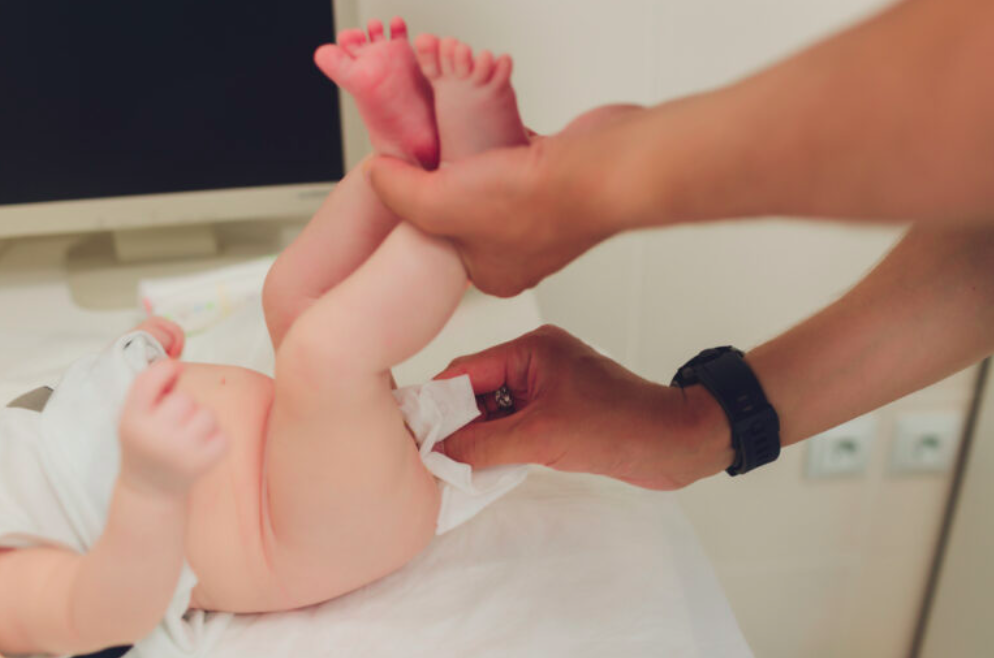It’s no secret that parenting advice has evolved rapidly over the years—what was once considered odd or fringe can now spark meaningful conversation. But one suggestion from an Australian “sexuality educator” has ignited a fiery debate that’s sweeping social media: should parents ask their baby for consent before changing a diaper?
That’s exactly what Deanne Carson, an educator and author, proposed during a TV interview—arguing that building a “culture of consent” should start from the moment a child is born.
Naturally, the idea caused a stir.
Wait—Ask a Baby for Permission?
To many, the idea seems, at best, symbolic—after all, babies don’t have the verbal skills to say “yes” or “no.” But Carson clarifies that it’s not about expecting a literal reply. It’s about teaching respect for bodily autonomy early, even through simple rituals.
Her suggestion? Narrate your actions to the baby—like saying “I’m going to change your diaper now, okay?”—and pause for a moment to make eye contact or read the baby’s body language. It’s more about the principle than the practice.
“Of course a baby isn’t going to say, ‘Yes mum, that’s awesome,’” Carson said during her interview on Australia’s ABC. “But by creating that space, you’re telling your child their response matters—even from day one.”
Is This Enlightened or Just Extreme?
Not everyone is on board. Critics across the internet—along with some psychologists and parenting commentators—called the idea everything from “impractical” to “absurd.”
John Rosemond, a longtime parenting columnist, labeled it “the most bizarre idea of all time.” Others were blunter, accusing Carson of turning a critical conversation about consent into a punchline.
Some online commenters mocked the suggestion outright:
-
“Pretty sure when a baby cries with a full diaper… that’s consent. Actually, it’s a demand.”
-
“Do you also ask your cat for consent before cleaning its litter box?”
-
“Leaving a child in a dirty nappy is legally child abuse. Does this woman support that?!”
And yet, amid the backlash, a few people spoke up in her defense.
“I’m shocked at how negative the response has been,” one person commented. “Even if the example was clumsy, isn’t it harmless to show respect to your baby’s body?”
Another wrote, “It’s about starting healthy habits. The point is encouraging respect and communication from an early age. That doesn’t seem like a bad thing.”
Consent or Communication?
Many early childhood experts emphasize the importance of communicating with babies—talking to them, naming feelings, and responding to non-verbal cues like eye contact or cooing. In that sense, Carson’s idea falls in line with a growing emphasis on mindful parenting.
Even if babies don’t understand the words, they respond to tone, consistency, and emotional safety. And by modeling respect for their bodies, some argue, parents are laying the foundation for future conversations about consent that will matter much more.
Still, for most parents, the idea of formally asking for permission before a diaper change feels like a stretch—or at least something more symbolic than practical.
Where Do You Stand?
Is asking for consent just a thoughtful way to build trust—or an unrealistic attempt to apply adult logic to baby care? Carson’s comments might sound extreme to some, but they’ve definitely sparked a broader conversation: how early should we start teaching kids about boundaries, respect, and consent?
In the end, it may come down to parenting style. For some, it’s about creating rituals of kindness and communication. For others, it’s enough to simply be responsive, nurturing, and tuned in to their child’s needs.
What do you think? Should consent start in the crib—or is this a case of taking things too far? Share your thoughts and help us hear more voices on this intriguing topic.

Sophia Reynolds is a dedicated journalist and a key contributor to Storyoftheday24.com. With a passion for uncovering compelling stories, Sophia Reynolds delivers insightful, well-researched news across various categories. Known for breaking down complex topics into engaging and accessible content, Sophia Reynolds has built a reputation for accuracy and reliability. With years of experience in the media industry, Sophia Reynolds remains committed to providing readers with timely and trustworthy news, making them a respected voice in modern journalism.
